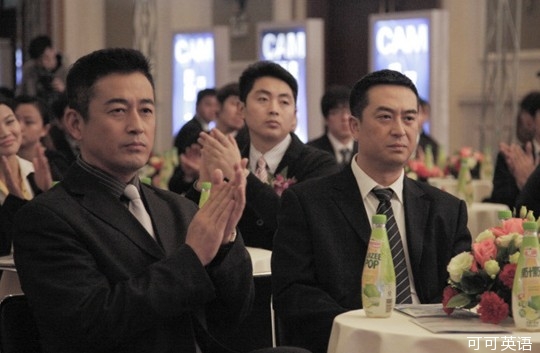
When Shuanghui International lists in Hong Kong sometime in the next few months it will give the world a novel beast: a Sino-US pork giant worth up to $12bn. But this beast almost certainly would not have been created without the push of private equity.
几个月后当双汇国际(Shuanghui International)在香港挂牌上市时,将为整个世界带来一匹新兴黑马:一家市值高达120亿美元的中美猪肉加工巨头。但如果没有私募股权的推动,这匹黑马几乎不可能被创造出来。
Shuanghui’s bold $7.1bn takeover of Smithfield Foods of the US last year was a deal plump with strategic gains. China’s urban drift and embourgeoisement means more people want not only more meat, but also meat that is safer and with posher sounding foreign brand names.
双汇去年大胆斥资71亿美元收购了美国企业史密斯菲尔德食品公司(Smithfield Foods),这项交易在战略上的益处很多。中国的城镇化进程以及中产阶层的崛起意味着,越来越多的人不仅想吃更多的肉制品,还希望肉制品的质量更加安全,并拥有更具品位的外国品牌。
Shuanghui, already China’s biggest pork producer with more pigs than Beijing has citizens, nailed three strategic imperatives with this deal. First, access to raw meat supply; second, the technology and knowhow to produce more pork more efficiently; and third, a string of popular US brands for meat, bacon and sausages.
双汇——该公司现已是中国第一大猪肉生产商,存栏生猪数量超过北京居民人数——通过这项交易达到了三大战略目的。其一,得到了生肉供应渠道;其二,获得了以更高效率生产更多猪肉的技术诀窍;其三,收获了一系列颇受欢迎的美国肉食、火腿以及香肠品牌。
But to the frustration of M&A bankers, there are hundreds if not thousands of corporate marriages between Chinese companies and foreign businesses that make oodles of strategic sense but do not happen. At a time when M&A activity had crumbled elsewhere, the world’s second-largest economy last year finally became the second largest home for companies pursuing acquisitions overseas, according to Dealogic. But the near $70bn total value of outbound deals was still only about one-third of international deals by US companies.
但让并购银行家们颇有挫败感的是,中国企业与外国企业之间存在着成百上千个在战略上高度合理的联姻机会,但这些机会未能得到利用。Dealogic提供的数据显示,虽然去年全球其他地区的并购交易活动显著萎缩,但中国企业在海外进行的并购交易数量终于攀升到了全球第二位,与中国作为全球第二大经济体的地位相称。但中国企业海外并购交易的总规模不到700亿美元,仍只是美国企业国际并购规模的大约三分之一。
At Shuanghui, what got the deal done was the presence of private equity. A takeover can make all the strategic sense in the world, but the people behind a company – its owners and its executives – still need a tangible, immediate incentive to work the hours and take the risks needed to pursue the deal.
对于双汇来说,促使并购交易达成的原因在于私募股权的介入。一项并购交易可以在战略上充分合理,但真正掌管企业的人——即企业的所有者和管理层——仍然需要一种看得见摸得着的激励,才愿意为了达成交易而投入长时间的工作并承担风险。
CDH Investments, a Chinese private equity house, and Goldman Sach’s investment arm have both had money in Shuanghui since 2006. CDH owns about one-third of the company, while Goldman and a handful of other private investors own a further 20 per cent. These investors have been agitating for an exit and Shuanghui’s septuagenarian founder, Wan Long, made an eager accomplice.
中国私募股权公司鼎晖投资(CDH Investments)以及高盛(Goldman Sachs)旗下的投资部门自2006年以来都向双汇进行了投资。鼎晖投资拥有双汇约三分之一的股权,而高盛以及另外几个私人投资者拥有20%的股权。这些投资方一直在努力推动双汇上市,双汇年届七旬的创始人万隆热切地成为了他们的同盟。
Other investors and bankers in Asia reckon it will be extremely difficult to stitch Shuanghui and Smithfield into a coherent and unified company. The company may not even properly attempt it. But what they are certain of is that the chairman and his backers have created a commercial proposition that can be sold to the public markets – and that outcome more than anything else drove the deal, they say.
亚洲其他投资方以及银行家们认为,把双汇和史密斯菲尔德整合为一家协调统一的公司将非常困难。双汇甚至可能做不出恰当的尝试。但他们确信的一点是,双汇董事长万隆以及他的支持者们拿出了一项能向公开市场兜售的商业主张——他们指出,相对于其他方面来说,那是推动交易实现的最主要因素。
No sector in China today needs a catalysing ingredient more than the state-owned enterprises. This is likely to give private equity some of its best, if toughest, opportunities in the years ahead, according to some senior dealmakers from the industry.
在当今中国,没有哪个领域比国有企业更需要催化剂。业内某些资深交易撮合者指出,未来几年国有企业改革可能给私募股权带来一些最好的、同时也是难度最大的机遇。
The industry in Asia has never managed to create the conveyor-belt of leveraged buyouts and resales of companies that it achieved in the US and Europe. Last year, there were just five buyouts worth more than $1bn in the entire region, including Japan.
私募股权行业从未在亚洲成功打造出过杠杆收购以及企业转售的传送带,相对于其在美国和欧洲的表现有很大差距。去年在包括日本的整个亚洲,仅有5笔超过10亿美元的收购交易。
State-owned enterprises offer the chance for private equity to make real change and real money. Fred Hu, the former head of Goldman Sachs in China and founder of Primavera, one of China’s oldest and best known private equity houses, says there are some very good, talented people operating inside SOEs, but that they lack the incentives – financial or otherwise – to push change.
国有企业为私募股权提供了做大事、赚大钱的机会。胡祖六(Fred Hu)是高盛中国区前主管、中国成立最久、知名度最高的私募股权公司之一春华资本(Primavera Capital)的创始人。他表示,国有企业拥有一些非常出色、极有才干的经营人才,但这些人缺乏推动变革的动力——不论是财务还是其他动力。
“Private equity can play a good role [in SOE reform] partly as capital provider, but also to help change the culture and the mindset,” he says. “Be under no illusion, this could be a good opportunity, but it will be very hard. Technically, culturally and politically there are a lot of risks there.” Another very experienced Chinese private equity leader says the presence of investors with very specific and time-limited financial goals “really helps to affect that change as an outside force”. XD Yang, the head of Carlyle in China, told a small industry gathering in Hong Kong last week that his firm was excited by the opportunities in reshaping bigger SOEs.
他说:“私募股权可以在国有企业改革中扮演资金提供者的重要角色,同时还能帮助国企改变内部文化和员工心态。要清楚地认识到,这可能是一个大好机遇,但操作起来将非常艰难。在技术上、文化上以及政治上都存在很多风险。”另一位资历颇深的中国私募股权行业领袖表示,拥有明确以及中短期财务目标的投资者的出现,“非常有助于作为一种外部力量影响变革进程”。凯雷(Carlyle)中国区主管杨向东(XD Yang)最近在香港的一个小规模行业集会上表示,他的公司对大型国有企业改革中蕴含的机遇感到非常兴奋。
Private equity managers will need good political contacts and diplomatic skills to smooth egos, ease out the obstructive older guard and help the talented executives get the performance-related pay schemes that will give them the tangible incentives to reshape their companies.
私募股权公司的经理们需要出色的政界人脉以及外交技巧,以安抚相关方面的自尊心,请走那些阻挡阻碍改革的守旧者,帮助有才能的高管获得与业绩挂钩的薪酬方案,使他们有实实在在的动力去改革自己所在企业。
Private equity’s best role in China should be as agitator and catalyst that will not only unlock investment opportunities for firms but potentially put China M&A on a closer footing to its economic might.
私募股权在中国的最佳角色应当是一个推动者和催化剂,不仅能够为企业开启投资机会,还有望使中国的并购格局与中国的经济实力更加相称。













